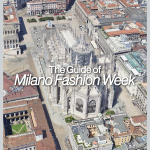
From streetwear to food, Nutella Biscuits are the new luxury
Brief analysis of the marketing strategy behind Nutella Biscuits
November 28th, 2019
If you live on this planet and have left home in the last twenty days, you cannot have missed the Nutella Biscuits advertisements. MMarketed on billboards on the streets, on the metro and online, Ferrero cookies invaded the cities and feeds of Instagram and Facebook, causing a wave of enthusiasm and hype in all Italian supermarkets. The paradox is that today Nutella Biscuits have become unobtainable, so much so that some supermarkets needed to ration their sales and someone is reselling them on Amazon at 12 euros a pack.
Ferrero said it sold almost three million packs in less than a month, which at this rate will lead to an annual turnover of 130 million euros, far exceeding the initial target set by the company of 80 million. Despite the amazing success, it seems difficult that Ferrero - the largest confectionery company in the world, owner of Kinder, Tic Tac, Estathe - does not have a factory suitable to satisfy any kind of request. Rather it seems that behind the launch of Nutella Biscuits there is a precise marketing strategy that was stolen or better imported by streetwear. The Nutella Biscuits have indeed followed all the stages of the hype, as if it was a drop of Supreme or the last collaboration between Virgil Abloh and Nike: the announcement of the drop of the product, a spasmodic fever among the consumers followed by a sudden absence of the goods that produces all the real and digital conversations and the phenomenon of resell. In short, despite being a simple chocolate biscuit - for many too similar to the Baiocchi - the right marketing formula made it more viral than a Yeezy release.

How does manufactory scarcity work?
Ferrero's strategy is based on the principle of scarcity that today governs the fashion market. This is a simple process, however counterintuitive: a brand puts on the market a number of products that is lower than the demand, generating an imbalance on the market. Then the psychological component engages with dissatisfaction, or rather that which is defined as FOMO (Fear Of Missing Out), or that form of fear of feeling cut off, the social anxiety of being deprived of something that the community around us is sharing.
Nutella Biscuits are in fact a very basic product, but it's also the result of a decade-long analysis on behavior and conversions, in search of a strategy that makes the desired product impossible to find and not for its value. Now Ferrero could either raise the price (since there will be consumers willing to pay more for that same product) or increase the quantity produced. Paradoxically, instead, it decides to do nothing, generating what we now call hype: conversations and that aura that is generated around a product that manipulates its real and perceived value.
The same dynamics have led in less than ten years many brands such as Supreme or Palace - resuming a strategy invented in Japan - to achieve a success equal to that of high fashion brands, elevating streetwear to the level of high fashion. As with streetwear, one of the natural consequences is the birth of a resell market, which may seem absurd if you think we're talking about biscuits, but it's not if you consider that in the meantime you will find 10€ packs of Nutella Biscuits online, which cost almost four times more than the sale price recommended by Ferrero for a single package (€2.99).

If in fashion, as mentioned, artificial scarcity is a more defined and frequent concept, in the food market, which in Italy alone is worth around 35 billion (2% of GDP), this strategy is still a novelty. There are some cases like that of the Szechuan Sauce, a sauce produced by Mc Donald's in 1998 for a limited period on the occasion of the Mulan cartoon release. When the sauce was mentioned in the animated series Rick and Morty in 2017, many fans started to look for it on the net, asking the fast-food chain to put it back into production. On 7 October 2017, Mc Donald's distributed around 20 packages of salsa to selected restaurants, resulting in a row and disorder for a product that reached 420 dollars on eBay.
Nutella Biscuits are exceeding expectations and for this reason, Ferrero might think of making this product even more limited, perhaps by organizing raffles, pop-up stores or hype breakfasts with influencers.





















































